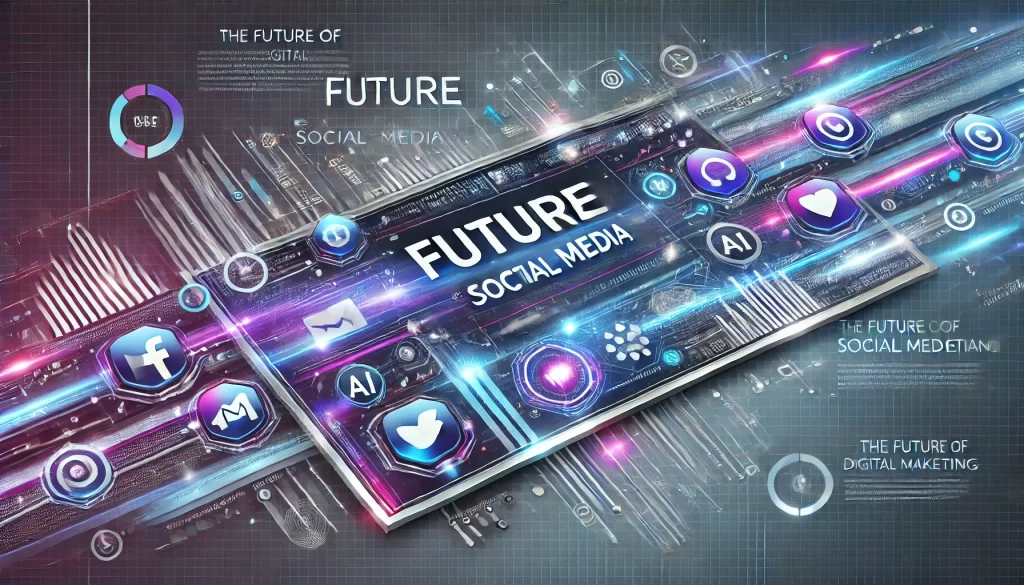
1. AI and Automation in Marketing
Artificial Intelligence (AI) is transforming how marketers operate, with tools that automate tasks, personalize content, and analyze data with incredible precision. AI-driven chatbots, predictive analytics, and programmatic advertising are just a few examples of how businesses can create more targeted and efficient marketing campaigns.
- Actionable Tip: Invest in AI-based tools for customer service, email marketing, and data analysis. This helps streamline operations and improves customer engagement.
2. Personalization and Hyper-Targeted Content
Consumers now expect personalized experiences, and generic content is becoming less effective. Advanced data analytics and machine learning algorithms allow brands to deliver hyper-targeted content based on user behavior, preferences, and demographics.
- Actionable Tip: Utilize customer data from your CRM systems and social media platforms to create personalized marketing campaigns that speak directly to individual needs and interests.
3. Video and Short-Form Content Domination
Video content, particularly short-form video on platforms like TikTok, Instagram Reels, and YouTube Shorts, is dominating the social media landscape. These formats capture attention quickly, making them ideal for marketing in an era where attention spans are shrinking.
- Actionable Tip: Incorporate video marketing into your strategy. Create engaging, bite-sized content that aligns with your brand, and leverage storytelling to captivate your audience.
4. Influencer and Creator Marketing
Influencer marketing continues to grow, with micro and nano influencers offering more authentic engagement. Social platforms are also boosting creator tools, enabling businesses to collaborate more closely with content creators to build trust and reach new audiences.
- Actionable Tip: Partner with influencers who align with your brand values, and consider leveraging user-generated content to increase authenticity and engagement.
5. Social Commerce and Shoppable Content
Social media platforms are increasingly integrating e-commerce features, enabling users to shop directly from posts. Instagram, Facebook, TikTok, and Pinterest have rolled out features like product tagging and in-app shopping, turning social platforms into powerful sales channels.
- Actionable Tip: Implement shoppable posts and optimize your social profiles for seamless e-commerce experiences. Offer exclusive deals and promotions through social commerce to boost conversions.
6. Privacy and Data Protection
With privacy regulations like GDPR and CCPA becoming more stringent, businesses must prioritize transparent data practices and consent-based marketing. Consumers are more concerned about how their data is collected and used.
- Actionable Tip: Ensure your data collection and usage policies comply with the latest privacy laws. Build trust with consumers by being transparent about how their data is used and provide them with control over their privacy preferences.
7. Augmented Reality (AR) and Virtual Reality (VR) Experiences
AR and VR are revolutionizing how customers experience products and services online. These immersive technologies allow brands to create virtual shopping experiences, product demos, and even events that offer more engaging interactions.
- Actionable Tip: Explore AR for virtual try-ons or product previews, especially in industries like fashion, beauty, and home decor. Utilize VR for immersive experiences like virtual tours or interactive product showcases.
8. Sustainability and Social Responsibility
Consumers, especially younger generations, are increasingly favoring brands that demonstrate social responsibility and sustainability. Companies that align their marketing messages with social and environmental causes tend to resonate more with their audiences.
- Actionable Tip: Highlight your brand’s sustainability efforts and contributions to social causes. Engage in responsible marketing practices, and ensure your messaging reflects a commitment to environmental and societal well-being.
Conclusion
The future of digital and social media marketing will be shaped by advancements in technology, shifts in consumer behavior, and the growing demand for transparency and personalization. Businesses that stay ahead by leveraging AI, video content, influencer marketing, and e-commerce integrations, while maintaining a focus on privacy and sustainability, will continue to thrive in this dynamic landscape.